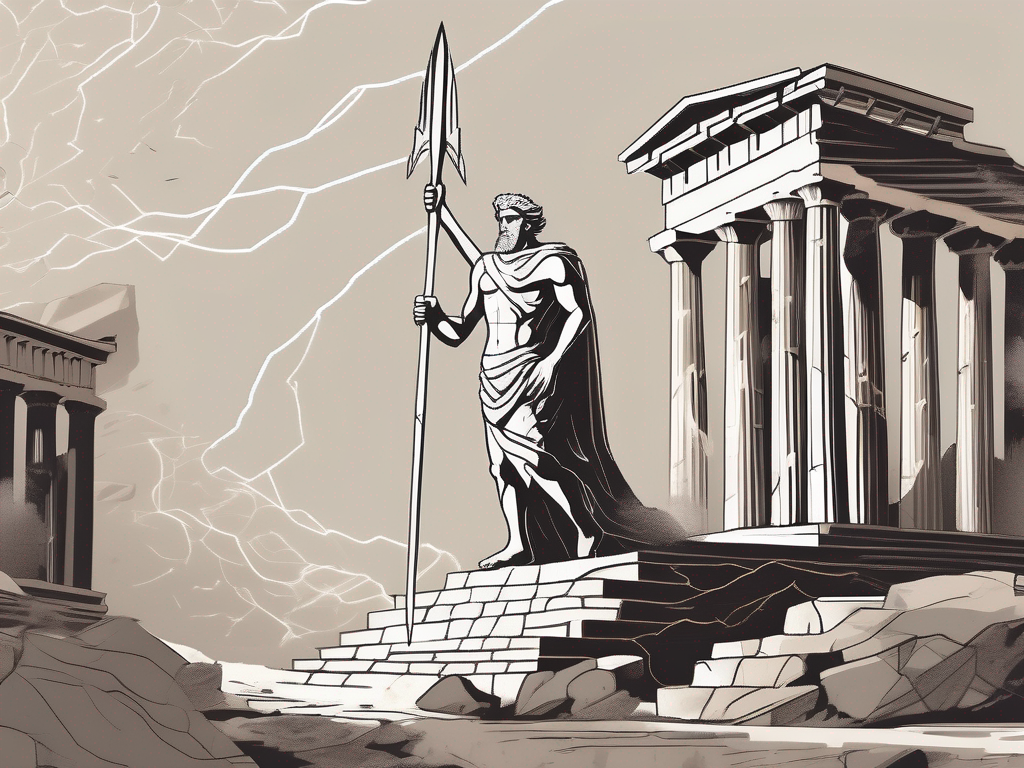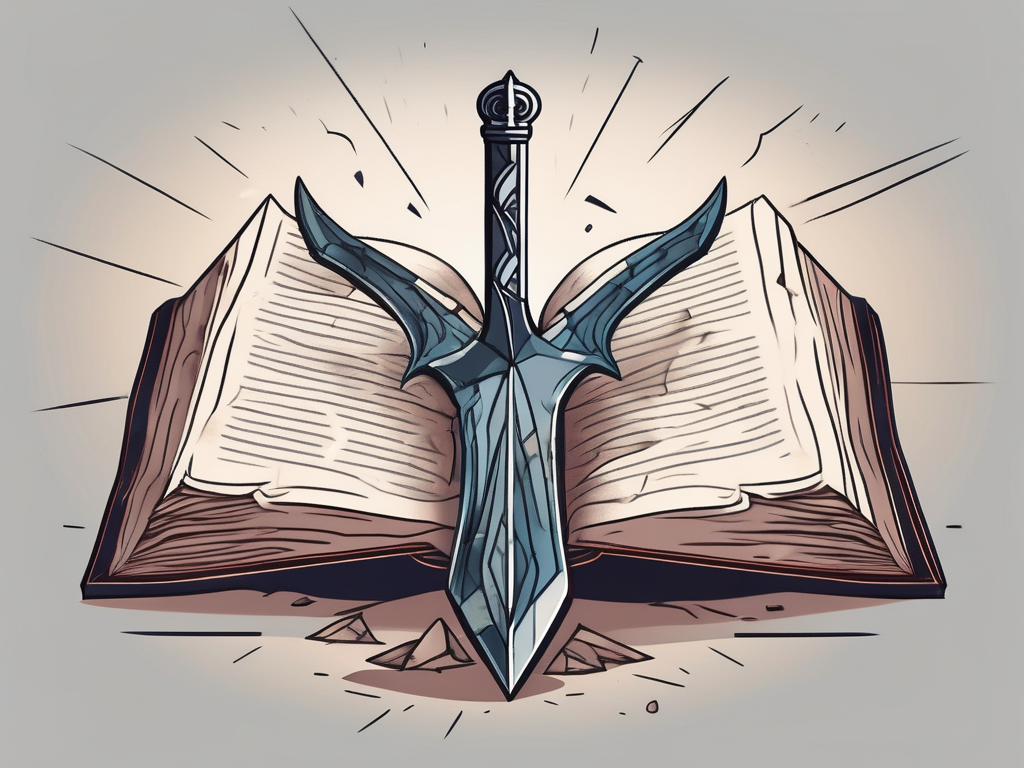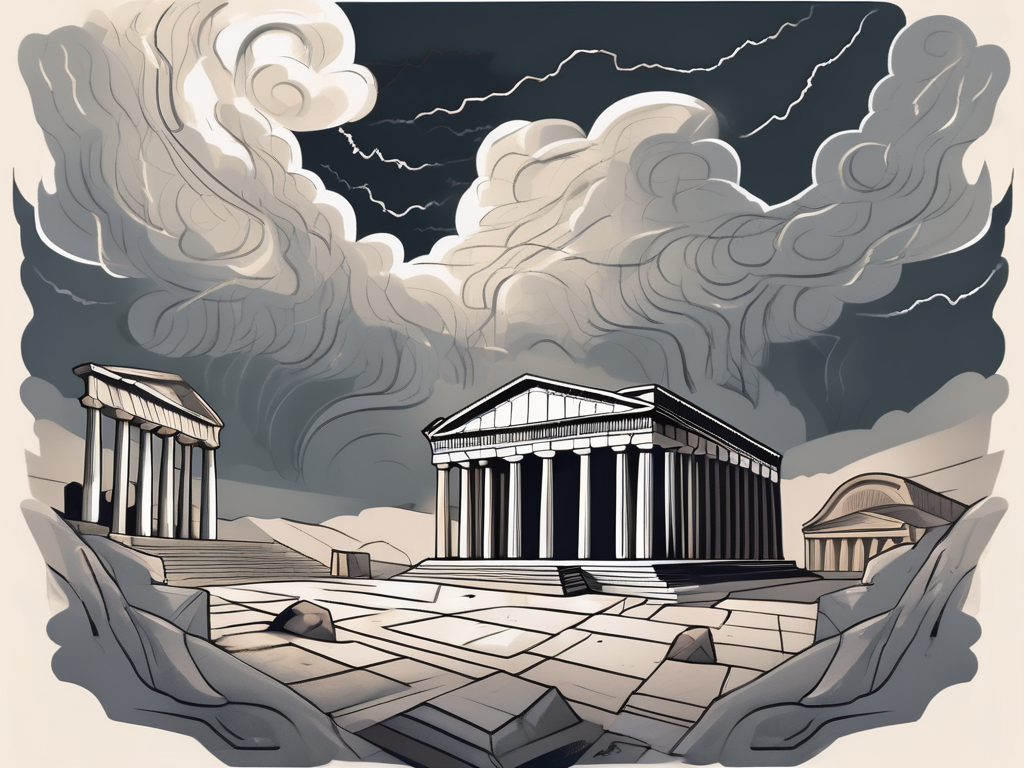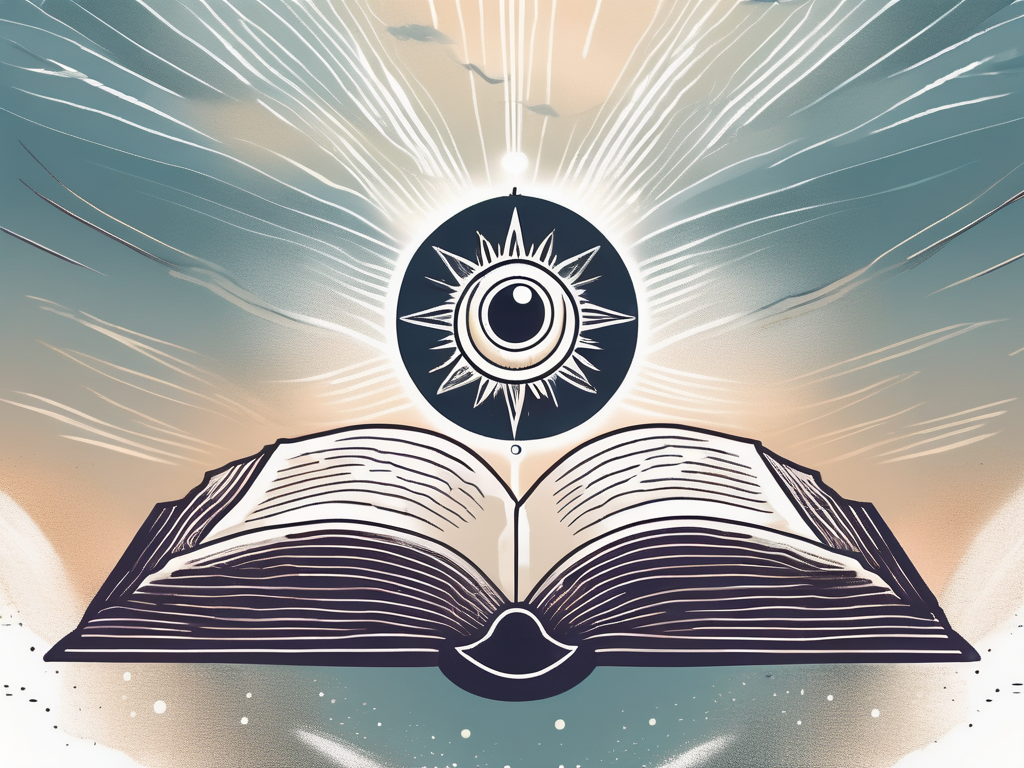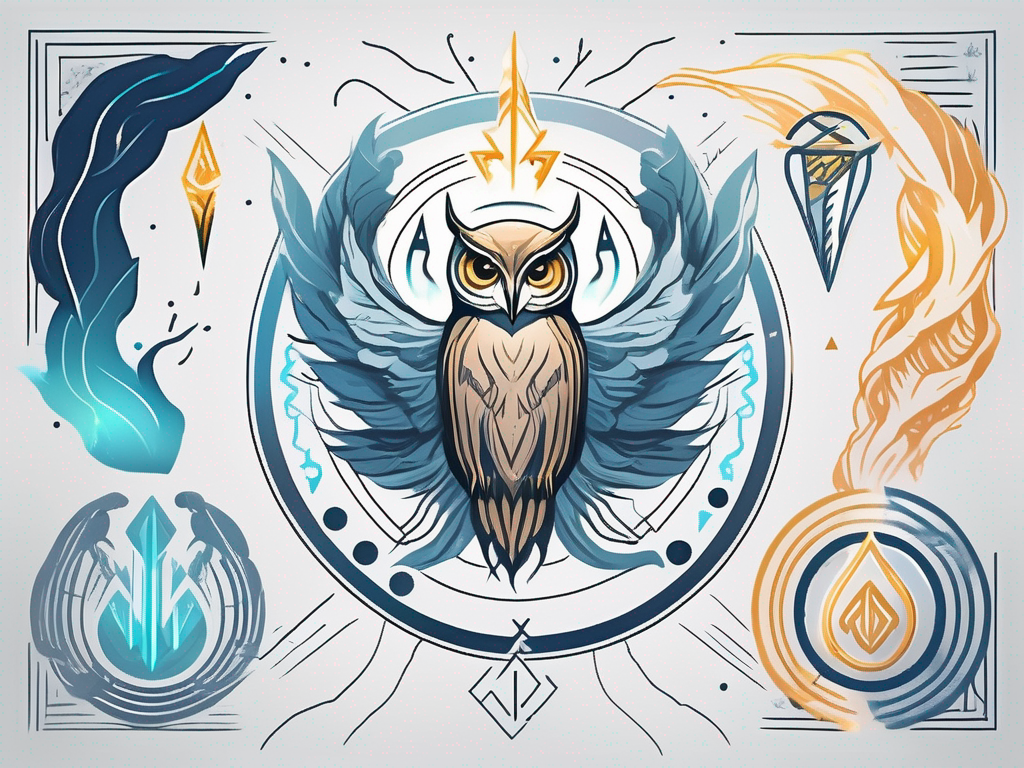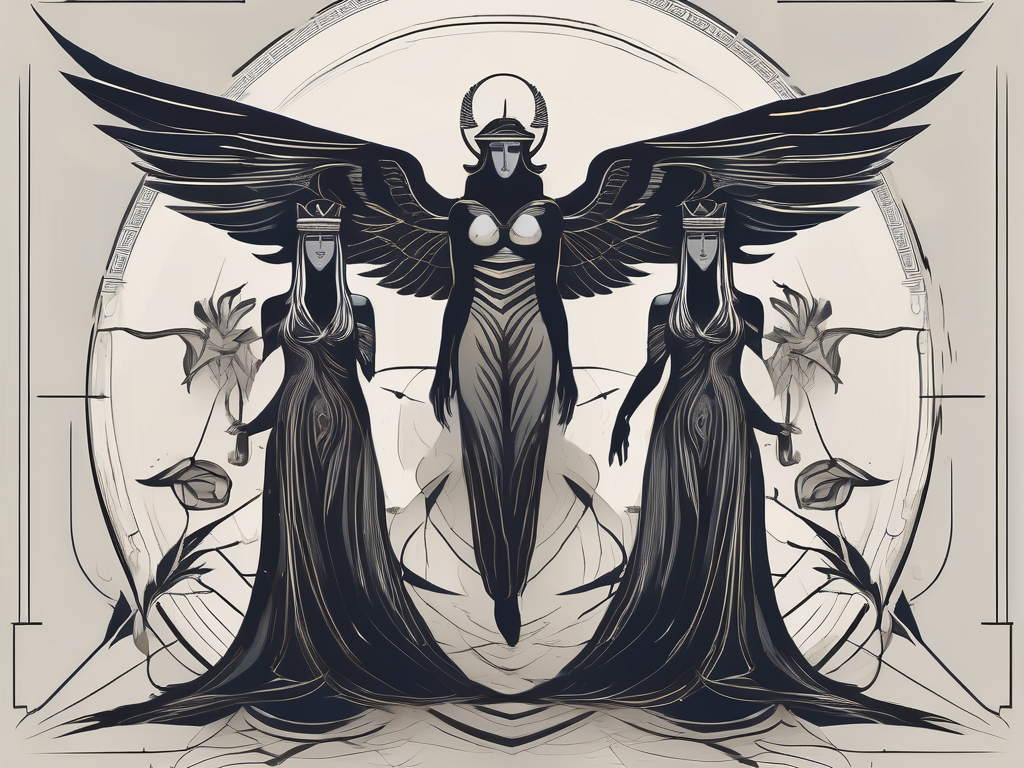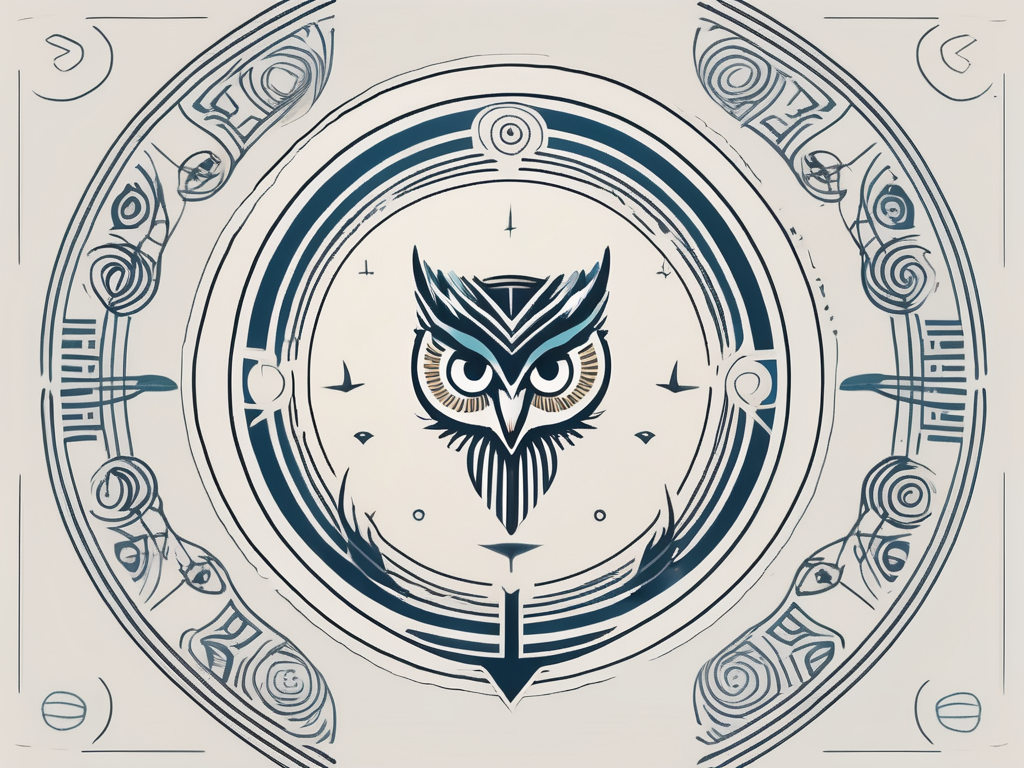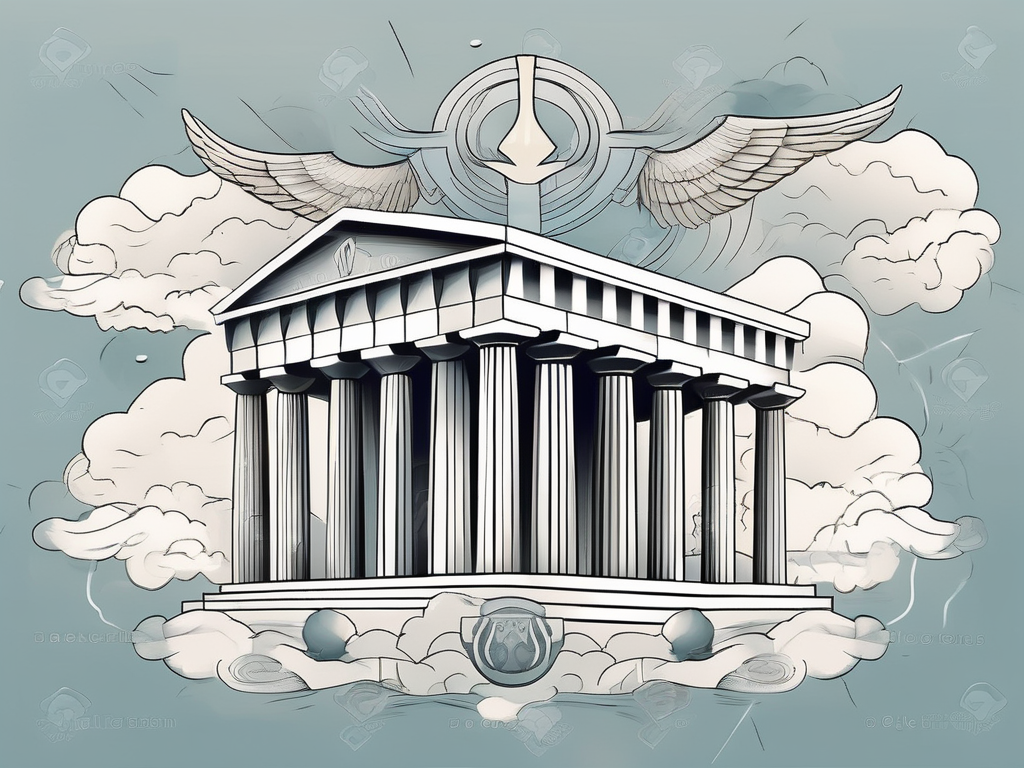Have you ever heard of Alastor? If not, don’t worry. In this article, we will delve deep into the mythology and powers of this intriguing Greek god. Alastor may not be as well-known as Zeus or Poseidon, but his story is just as captivating.
Understanding Alastor: An Introduction
Before we explore Alastor’s mythology and powers, let’s start with a brief introduction. Alastor is one of the lesser-known Greek gods, often associated with vengeance and retribution. But there is much more to him than meets the eye.
Legend has it that Alastor was born as the spirit of familial feuds. He personifies the grudges and conflicts that arise within families, often escalating into full-scale battles. With his powers, Alastor seeks to restore balance and fairness in these family disputes.
But what exactly are Alastor’s powers? How does he go about bringing justice to those who have wronged others? To answer these questions, we must delve into the origins of this enigmatic deity.
The Origins of Alastor
Alastor’s origins can be traced back to ancient Greece. In Greek mythology, he was often depicted as a dark and mysterious deity, lurking in the shadows. While the exact details of his birth are uncertain, some believe that Alastor emerged from the chaos that existed before the creation of the world.
According to ancient texts, Alastor was the son of the primordial deities, Nyx (the goddess of night) and Erebus (the god of darkness). This lineage explains his association with the shadows and his enigmatic nature.
But Alastor’s connection to darkness goes beyond his parentage. It is said that he draws his power from the depths of the underworld, where he gathers the energy needed to carry out his divine duties. This connection to the realm of the dead gives him a unique perspective on justice and retribution.
Alastor’s Role in Greek Mythology
In Greek mythology, Alastor played a significant role in the divine hierarchy. He was known as the punisher of wrongdoers and the protector of justice. Whenever someone committed a terrible act, Alastor would ensure that they faced the consequences, often in the form of divine retribution.
But Alastor’s role extended beyond mere punishment. He was also seen as a guardian of the innocent, a champion for those who had been wronged. In many myths, Alastor was portrayed as an avenger, seeking justice for those who had been wronged. He became the embodiment of the victims’ wrath, ensuring that their tormentors received their just desserts.
Alastor’s influence extended beyond the realm of mortals. Even the gods themselves feared his power, for he would not hesitate to bring forth punishment on any deity who had transgressed against the natural order of things. This made him a formidable force in the divine pantheon, respected and feared by all.
It is important to note that Alastor’s actions were not driven by personal vendettas or a thirst for bloodshed. His purpose was to restore balance and uphold justice in a world that often fell into chaos and discord. While his methods may seem harsh, they were necessary to maintain order and prevent further harm.
So, the next time you hear the name Alastor, remember that he is more than just a god of vengeance. He is a complex deity with a deep sense of justice, striving to bring harmony to a world plagued by conflict and wrongdoing.
The Powers of Alastor
Now that we understand Alastor’s role in Greek mythology, let’s explore his powers in more detail. While his primary domain is familial feuds, Alastor’s influence extends to various aspects of human life.
Alastor as the God of Family Feuds
As the god of family feuds, Alastor possesses the ability to sow discord and resentment among relatives. He capitalizes on existing tensions and amplifies them, causing rifts that can tear families apart. However, his ultimate goal is to restore harmony and balance by resolving these conflicts and guiding families towards reconciliation.
In ancient Greece, families were often torn apart by bitter disputes, leading to years of animosity. Alastor’s intervention was seen as a means to restore familial bonds and ensure that disputes were settled in a fair and just manner.
When Alastor intervenes in a family feud, he carefully examines the root causes of the conflict. He delves into the deep-seated emotions and grievances that have fueled the discord, seeking to understand the complex dynamics at play. With his profound insight, Alastor then crafts a plan to address these underlying issues and facilitate healing.
Alastor’s power lies not only in his ability to create chaos but also in his capacity to bring about resolution. He possesses a deep understanding of human nature and the intricate workings of family dynamics. With his guidance, families are able to confront their differences, communicate openly, and find common ground.
Furthermore, Alastor’s influence extends beyond the immediate family members. He also has the power to touch the hearts of extended relatives, neighbors, and friends, urging them to support the process of reconciliation and contribute to the restoration of harmony.
Alastor’s Role in Vengeance and Retribution
Another aspect of Alastor’s powers lies in the realm of vengeance and retribution. Those who have suffered injustice seek solace in Alastor’s presence, as he is their advocate for justice. With his formidable powers, Alastor ensures that wrongdoers face the consequences of their actions, delivering a sense of closure to the victims.
In Greek society, Alastor’s role was not just limited to retribution against individuals. He also stood as a symbol of societal justice, ensuring that no crime went unpunished and that fairness prevailed.
When someone seeks Alastor’s assistance in seeking retribution, he carefully examines the circumstances surrounding the injustice. He weighs the severity of the offense and evaluates the intentions and motivations of the wrongdoer. Alastor’s judgment is not driven by blind rage but by a deep sense of fairness and the desire to restore balance.
Once Alastor has determined the appropriate course of action, he unleashes his powers to ensure that justice is served. Whether it is through divine intervention or by influencing mortal authorities, Alastor ensures that the wrongdoer faces the consequences of their actions.
However, Alastor’s pursuit of justice is not solely focused on punishment. He also seeks to bring about transformation and growth in the wrongdoer. Through a combination of retribution and guidance, Alastor aims to instill a sense of remorse and understanding in the individual, encouraging them to learn from their mistakes and make amends.
Alastor’s role as the advocate for justice extends beyond individual cases. He also works to uphold the principles of fairness and righteousness in society as a whole. His presence serves as a reminder that no one is above the law and that every action has consequences.
Alastor’s Depiction in Ancient Literature
To truly understand Alastor, we must turn to the ancient texts that have preserved his legacy. Many renowned Greek authors incorporated Alastor into their works, each presenting their own interpretation of this enigmatic deity.
Alastor in Homer’s Works
Homer, the legendary poet, referenced Alastor in both the Iliad and the Odyssey. In these epic poems, Alastor is depicted as a vengeful force that ensures that those who transgress against others receive their just punishment. His presence serves as a warning to mortals to think twice before committing acts of injustice.
Homer’s portrayal of Alastor showcases the god’s unwavering commitment to justice and his dedication to maintaining order in the world.
Alastor in Hesiod’s Theogony
In Hesiod’s Theogony, Alastor is mentioned as one of the children of Nyx, the goddess of night. Hesiod describes Alastor as a relentless pursuer of evildoers, appearing when they least expect it to administer divine retribution.
Alastor’s inclusion in Hesiod’s Theogony demonstrates the god’s significance and the fear he instilled in both mortals and immortals alike.
The Symbolism of Alastor
Beyond his role within mythology, Alastor holds symbolic meaning in Greek society. His character and powers are reflections of deeper cultural understandings and values.
Alastor as a Symbol of Retribution
Alastor’s association with retribution extends beyond his mythical deeds. He personifies the Greek belief in karma, the idea that one’s actions will eventually catch up with them. Alastor reminds us that justice will prevail, and those who commit wrongdoings will face the consequences, both in this life and the next.
The Role of Alastor in Greek Society
In ancient Greece, Alastor served as a constant reminder of the need for justice in society. His presence acted as a deterrent against crime and served as a warning to those who sought to take advantage of others. The fear of Alastor’s wrath helped maintain a sense of order and justice.
Alastor’s Influence on Modern Culture
The legacy of Alastor reaches beyond the ancient world. Even in modern times, his presence can be felt in various works of literature and film.
Alastor in Modern Literature and Film
Contemporary authors often draw inspiration from Greek mythology, including Alastor in their works. Whether in novels or movies, Alastor is portrayed as a complex and multi-faceted character, embodying both justice and vengeance.
These modern interpretations of Alastor serve as a testament to the enduring influence of Greek mythology and the timeless themes it explores.
The Legacy of Alastor in Contemporary Society
While Alastor may not be a household name like Zeus or Aphrodite, his legacy lives on in our society. The concepts of justice, retribution, and family harmony that he embodies continue to be fundamental to human relationships and societal values.
Alastor’s story serves as a reminder that even in the face of conflict and injustice, there is always a possibility for resolution and redemption.
In conclusion, Alastor is a fascinating yet often overlooked figure in Greek mythology. As the god of family feuds, justice, and retribution, his influence extends far beyond his initial portrayal. From ancient texts to modern interpretations, Alastor’s character and powers continue to captivate and resonate with audiences.
